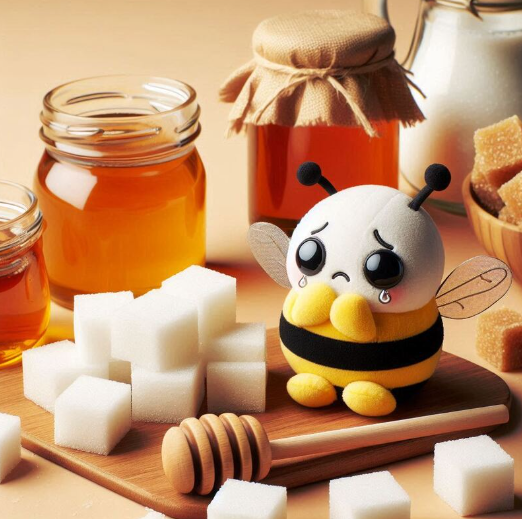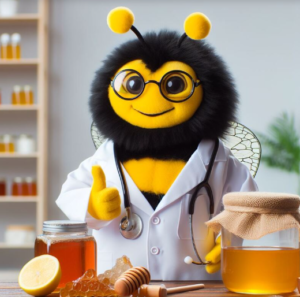For generations, honey has been celebrated not only for its delicious sweetness but also for the numerous health benefits it allegedly offers. However, beneath the enticing labels of this golden liquid lies a pressing question: Is honey as healthful as we've been led to believe? This exploration dives into the reality behind honey's perceived health advantages and exposes some surprising truths.
This morning, while enjoying the tranquil beauty of my garden and sharing thoughts with a friend, I noticed the bees diligently buzzing among the vibrant flowers. During our conversation, I shared an astonishing fact I recently learned—that a single bumblebee dedicates its entire life to producing merely a thimbleful of honey. This incredible effort made me ponder the sheer volume of honey available on supermarket shelves.
As we discussed this, I was struck by a revelation: if a solitary bee can only create such a minuscule amount of honey, how is it possible for stores to stock so much? My friend then highlighted a troubling fact—much of what we perceive as genuine honey may not be true honey at all. This prompted me to consider the implications of such a widespread misunderstanding.
She revealed to me that the seemingly innocent jar of honey sitting in my kitchen could be concealing a secret. It appears that the sweet nectar we often enjoy might not be as pure as we hope. In fact, it might not even be honey in its truest form. This startling realization raises important questions about the authenticity and quality of the honey we consume.

Table of Contents
ToggleUncovering the Truth About Supermarket Honey
Did you know that a significant portion of the honey found in our supermarkets is imported from countries like China? These imports are often produced at a fraction of the cost compared to honey sourced from local beekeepers. This reality raises serious concerns, particularly when we consider that much of this imported honey might not be entirely authentic. There are alarming reports indicating that some of the honey available on supermarket shelves has been adulterated with sugar syrup, masquerading as the genuine article.
It’s quite likely that the honey you believe is beneficial to your health, often labeled as “100% pure,” may actually be nothing more than a blend of inexpensive substitutes. This harsh reality can be tough to digest, especially since many people regard honey as a healthier alternative to sugar. We’ll delve deeper into this topic later.
What’s even more concerning is the lack of transparency regarding labeling. Supermarkets proudly assert that their honey can be traced back to the original beekeeper. However, they conveniently leave out essential details about its country of origin. How can consumers make informed choices when vital information is deliberately withheld from them?
The Impact of Honey Fraud on Beekeepers and Consumer Health
The consequences of honey fraud extend beyond misleading consumers. Around the world, beekeepers are grappling with financial despair as counterfeit honey inundates the market, undermining their tireless efforts and dedication, not to mention that of the hardworking bees! The implications for consumer health are equally troubling, as the adulteration of honey poses potential health risks.
These alarming revelations serve as a crucial warning for all of us. It’s imperative to peel back the layers of deception and demand transparency within our food supply chain. We must diligently scrutinize labels, pose questions to sellers, and champion local producers who maintain the integrity of their products. Moving forward, my personal choice will be to purchase only local, organic honey, ideally sourced directly from beekeepers or at local farmers' markets and farm shops.
As a concerned member of society, I urge you to join me in this initiative. I also encourage you to share this article to raise awareness about this critical issue.
Let’s ensure that the next time we reach for a jar of honey, we do so with our eyes wide open, fully aware of the quality and authenticity of what we're putting into our bodies. Our health is far too precious to risk falling victim to misleading practices.

Discover the Health Benefits of Authentic Organic Honey
If, like me, you are committed to consuming only authentic honey and want to learn more about its benefits, read on. Honey is not just a delightful treat; it also serves as a remarkable source of health advantages. Traditional medicine practitioners have revered honey for generations due to its unique healing properties. There are numerous compelling reasons why incorporating genuine organic honey into your diet is a wise choice.
The Nutritional Marvel: Understanding Honey's Benefits
Honey is not only known for its delightful sweetness but also boasts a remarkable nutritional profile. It is packed with beneficial compounds and has an impressive array of qualities, validated by scientific studies. These studies have shown that honey possesses antibacterial, antioxidant, anticancer, anti-inflammatory, and antiviral properties.
Harnessing Honey's Antibacterial Properties
One of honey's most celebrated health benefits is its ability to inhibit the growth of bacteria. When applied topically, honey's antibacterial properties can effectively prevent infections and promote wound healing. This makes honey a vital ally in supporting overall health and wellness, whether used externally as an ointment or consumed internally.
The secret behind this antibacterial activity lies in enzymes like glucose oxidase, which contribute to the production of hydrogen peroxide in honey. High concentrations of hydrogen peroxide are linked to honey's remarkable ability to aid in wound healing and act as a natural antibacterial agent.
The Antioxidant Power of Honey
Honey is rich in antioxidants, with primary antioxidants being flavonoids, including quercetin and phenolic compounds. These antioxidants play a crucial role in neutralizing potentially harmful free radicals, protecting our cells from the damaging effects of oxidative stress. While the body produces its own antioxidants, supplementing them through diet can enhance cellular health and lower the risk of chronic diseases such as diabetes, cancer, and heart disease.
Additionally, honey contains short peptides produced by enzymes called proteases, which also exhibit antioxidant properties. These peptides, rich in specific amino acids like cysteine, methionine, and tyrosine, contribute to honey's antioxidant capabilities. Notably, these enzymes assist in breaking down proteins into peptides and amino acids, which are vital for the body’s repair and growth processes.
Reducing Inflammation with Honey
Post navigation
Previous Post
 Preventing and Treating Gut Health Problems Effectively
Preventing and Treating Gut Health Problems Effectively